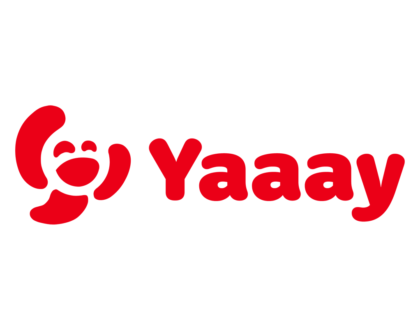Jiko-PR: How to Sell Your Strengths in Japanese (with Example)

by Florian
“Why should we hire you?” Many a job seeker has had problems with this question. In this article, we show you how to respond to it in Japanese, in a way that matches the expectations of Japanese companies.
コンテンツ
What is Jiko-PR?
Jiko-PR (自己PR) is the part of a Japanese resume where you talk about your strengths. It’s also a common part of job interviews. Literally, Jiko-PR translates to “self-public relations.” Just like it’s the job of a PR department to create a positive company image, “self-PR” is all about you presenting yourself as a desirable job candidate.
Jiko-PR often is often coupled with the question about your motivation for application. In a “western-style” application, you would combine both in your cover letter. On a Japanese CV, they go into separate boxes – so be sure to not get off-topic.
The Ideal Candidate: Japan vs Overseas
What are Japanese companies most looking for in a candidate for a job? And how are expectations different from companies outside of Japan?
In short, it looks somewhat like this:
Japanese Company: Wants a person with a strong work ethic and loyalty as well as a determination to commit, learn and improve themselves, even if they lack skills or experience in the beginning.
Western Company: Wants a “one-man wonder” – a person with as many skills as possible that can do almost anything that is asked of them right from the start and generate results today.
A phrase that shows up in many Japanese job offers for fresh university graduates is “inexperienced candidates welcome” (未経験者歓迎, みけいけんしゃかんげい).
I don’t remember ever seeing something like this in my home country. Outside of Japan, there are usually clear requirements even for entry-level jobs. Most companies ask for a degree in a relevant field or some work experience (which leads to the well-known problem of “I need a job to get work experience, but I also need work experience to get a job”).
Of course, even in Japan, there are jobs that require a relevant degree, previous experience, or both. Examples are the medical sector, law, or anything that has to do with engineering. Outside of specific fields though, many job types are also available for complete newcomers. Examples are marketing, accounting, writing/editing, sales, and even IT (coding). This is because Japanese companies like to retain their straight-out-of university hires long-term and train them on the way. You should always keep this in mind when applying to a Japanese company. It is the basis on which you’ll be evaluated.
(※For mid-career hires, the evaluation system is closer to the western model, but long-term potential and retention is still a bigger point than outside of Japan.)
What you want VS what the company wants
If you’ve ever read about Japanese culture, you’re probably heard of the words tatemae (建前, たてまえ) and honne (本音, ほんね). They are sometimes talked up as mysterious Japanese concepts that foreigners will never be able to understand. But when it comes down to it, they just mean “what a person says” and “what they really think”, respectively.
The interactions between (future) employer and (potential) employee is often a delicate dance of tatemae. This isn’t unique to Japan. In the end, there’s often some doubt left on both sides: “Are they being honest? Can I trust them?” When thinking about Jiko-PR, think about it as a chance to get rid of these doubts and show that you’re the right person for the job.
There are two entry points to Jiko-PR. The first option is to think about your strengths and then connect them to what the company is looking for. The other option is to think about what the company wants first and then decide on the strengths you want to emphasize. Ideally, you want a mix of both. Only emphasizing your strengths might lead you to a point that’s too far removed from the company’s day-to-day operations. On the other hand, over-adjusting to the company’s needs can make your answer sound hollow and insincere.
How to write Jiko-PR
If you find it hard to think of something convincing, you’re not alone. A lot of Japanese students struggle with Jiko-PR as well. A common problem is that the texts end up sounding contrived – like you just made stuff up to impress the reader. Another pitfall is giving a safe, but boring and unoriginal answer.
As long as you’re able to provide a good reason for why you chose the company, the strengths you use for Jiko-PR don’t have to be directly related to your future job or the sector you’ll be working in. Remember that Japanese companies value potential and loyalty higher than skills when hiring fresh graduates or other candidates with no experience.
What you write should be precise and clear. Avoid making broad statements without backup. When in doubt, ramp down the number of strengths you list. One small, but well-defined strength is better than multiple big and vague ones. “Being precise” also means that the text shouldn’t be too long (around 400 characters max).
In the end, you should be able to connect the thing you’re boasting about with your motivation for application as well as something the company does as a business.
Below are some things that you could use to build your Jiko-PR.
Mention previous work experience
Just like outside of Japan, previous work experience gets you the most points. Did you have a job or worked part-time in the recent past? Whatever it is you did, think about what kind of responsibilities your work entailed and how you acted to fulfill them. Don’t be quick to discard experiences because they don’t seem relevant. As a foreigner, even things like part-time convenience store work can show that you’re able to work in a Japanese environment.
What matters most is to show that you have qualities that make you a good and responsible employee.
Leverage study experiences
This could be anything from teaching yourself Python from scratch to studying for the JLPT.
Remember: Japanese companies are fine with inexperienced candidates as long as they are willing to learn and put in a bit of extra effort.
Many employers require JLPT N2 or N1 for their positions but don’t really know what studying for the test entails. Being able to say something like “I failed the N1 three times due to these reasons. But after reviewing my study schedule and keeping to it, was finally able to pass it with a good score on my fourth try” shows exactly the kind of determination many Japanese HR people are looking for.
Talk about hobbies and personal projects
Talk about extracurricular activities or other personal pursuits – what you did and how you succeeded. Many young Japanese think you need to have been the president of your university club or have some other kind of “leader experience” to impress HR. While it is seen a plus, it’s not something you need, so there’s no reason to awkwardly construct a scenario.
Instead, focus on your efforts and how you went about them, e.g. planning, scheduling, time investment, communication with others, goal-setting, etc.
Ready to try it out? While you can always figure own your own approach, it can be helpful to follow a guideline at first. Below, you can find a free worksheet based on the class contents at Linguage Japanese Language School. To fully utilize it, it’s recommended to figure out your “central axis” – the through-line that connects all parts of your application – first. To find out how to do this, head over to this article.
Jiko-PR Example
Below is a short example for a Jiko-PR. If you didn’t grow up bilingually or studied something else than Japanese Studies in university, even getting to a level of fluency where you’re confident enough to apply to a Japanese company is quite a feat, so I used that as the base.
私の強みは、一度決めた目標を達成するまで粘り強く頑張り続けることです。
My strength is my ability to keep going persistently until I reach the goals that I set for myself.
日本への興味は昔からあったのですが、4年前に初めて旅行で行ってから、日本をもっと深く知りたいと強く思いました。
I have been interested in Japan since I was little, but when I first came here four years ago on a holiday trip, I strongly felt that I wanted get to know the country on a deeper level.
帰国してすぐ、それまでに0に近かった日本語力をあげるべく普段の学業の傍らに独学で勉強を始め、2年後に日本語能力試験の3級、そして去年2級に合格しました。
After returning home, I immediately started studying Japanese in my free time. After two years, I was able to pass the N3 level of the JLPT and the N2 level last year.
今は日本でインターンシップをしながら、自分の目標として掲げた1級にも合格できるように、勉強を続けています。
At the moment, I am continuing my studies while doing an internship in Japan to achieve my set goal – passing the N1 level.
御社が手掛けているWEBデザイン事業にも興味があるのですが、同じ粘り強さで業務と向き合い、目標達成・成果にこだわりたいと考えております。
As I am also interested in your company’s web design business, I want to face my tasks with the same level of tenacity and my goal- and results-oriented mindset.
Conclusion
Regardless of where you are, relevant skills, real experiences and concrete examples are the best way to sell your strengths to get a job.
However, Japan offers a somewhat broader approach where technical skills and certifications are not necessarily the main focus and “soft skills” (if they are backed up with believable information) can be just as important and often even the deciding factor.
Want more advice?
Online guides are a good place to start, but ultimately, you’ll have to prepare something on your own. And without any experience, the biggest hurdle is telling whether what you have is convincing or not. Asking friends is one option, but if you want to prepare as well as possible, consider getting advice from experts.
Linguage Japanese Language school, located just a few minutes on foot away from Shinjuku station, offers both long- and short-term courses that combine Japanese education with job hunt support. At Linguage, you’ll be able to get direct feedback not only on your Jiko-PR, but also all other parts of your application. If you’re interested, check out our in-depth article about the school or click the button below to directly visit the homepage.
Linguage Japanese Language School
Recommended Posts

The 10 Most Popular Japanese Companies in 2021
19 5月 2021 - Work





